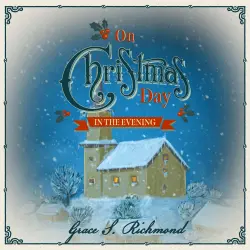
FDR and the Evolution of an American Ideal
Jeffrey Engel
Unabridged
1 uur 11 minuten
Opmerking: Er kunnen kosten verbonden zijn aan het afspelen van de audioboeken of hoorspelen op de respectievelijke platforms, bijv. Spotify. Lismio heeft geen invloed op welke luisterboeken en hoorspelen beschikbaar zijn op de service.
Sommige artikelen bevatten affiliate links (gemarkeerd met een sterretje *). Als je op deze links klikt en producten koopt, ontvangen we een kleine commissie zonder extra kosten voor jou. Uw steun helpt ons deze site draaiende te houden en nuttige inhoud te blijven maken. Hartelijk dank voor uw steun!
Van de uitgever
One Day University presents a series of audio lectures recorded in real-time from some of the top minds in the United States. Given by award-winning professors and experts in their field, these recorded lectures dive deep into the worlds of religion, government, literature, and social justice.
The United States stands for freedom. No politician dares say otherwise, lest they seek an early retirement. But what kind of freedom, precisely, and for whom? Franklin Roosevelt offered an answer in 1941. Believing the United States had a role to play in the battle against Nazi and fascist aggression already underway in Europe, he called Americans to arms to preserve their very freedoms. Four freedoms, to be exact: freedom of speech, freedom from want, freedom of religion, and freedom from fear. Roosevelt's words helped define American politics and foreign policy for generations, but the freedoms he desired are not necessarily those espoused today. He called for freedom from want, citing the need for universal health care in particular. Yet, contemporary Americans continue to struggle to find a universal sense of how much is too much. He called for freedom of speech, yet today we debate if that applies to corporations as well as people. He called for the freedom to worship, yet not every religion is universally embraced across the political spectrum. Finally, Roosevelt promised freedom from fear, and today Americans live as fearful of the future as ever. Americans live in the shadow of FDR, but as we ponder the country's future, and as we trace the evolution of our common understanding of this term from 1941 to our present day, we need to ask as well: if we stand for freedom, can we even define it?
The United States stands for freedom. No politician dares say otherwise, lest they seek an early retirement. But what kind of freedom, precisely, and for whom? Franklin Roosevelt offered an answer in 1941. Believing the United States had a role to play in the battle against Nazi and fascist aggression already underway in Europe, he called Americans to arms to preserve their very freedoms. Four freedoms, to be exact: freedom of speech, freedom from want, freedom of religion, and freedom from fear. Roosevelt's words helped define American politics and foreign policy for generations, but the freedoms he desired are not necessarily those espoused today. He called for freedom from want, citing the need for universal health care in particular. Yet, contemporary Americans continue to struggle to find a universal sense of how much is too much. He called for freedom of speech, yet today we debate if that applies to corporations as well as people. He called for the freedom to worship, yet not every religion is universally embraced across the political spectrum. Finally, Roosevelt promised freedom from fear, and today Americans live as fearful of the future as ever. Americans live in the shadow of FDR, but as we ponder the country's future, and as we trace the evolution of our common understanding of this term from 1941 to our present day, we need to ask as well: if we stand for freedom, can we even define it?







